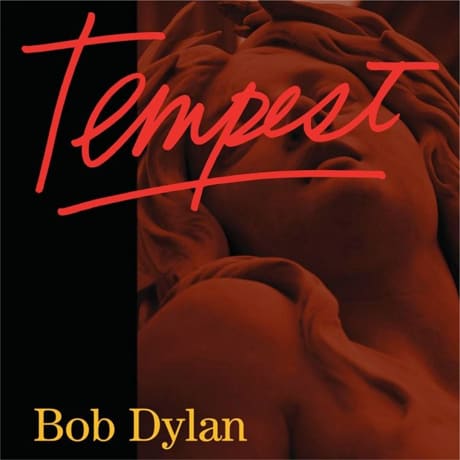Out of Bob Dylan's countless achievements throughout his 50-year career, the greatest is how he's consistently fended off all attempts to knock him off his lofty pedestal. Those battles have become intense in this digital age, with accusations of plagiarism now dogging him at every turn. Into this atmosphere comes Tempest, a ten-track collection of familiar blues and folk themes, with the equally familiar cast of musical characters that Dylan's surrounded himself with since 2001's Love and Theft. Having that security is something Dylan covets at this stage in his life; his band members play the role of dutiful sidemen to a tee, often to the detriment of the end result. It's therefore more tempting to approach a new Dylan album more like a work of literature, since the lyrics are far and away the main attraction. So, what to make of Dylan's image on the majority of Tempest as an unrepentant outlaw? In broad terms, what tracks like "Pay in Blood," "Scarlet Town" and "Early Roman Kings" (this one a straight musical rip-off of Bo Diddley's "I'm A Man") say is that everyone gets what's coming to them. This also extends to the much-discussed title track, a 14-minute account of the sinking of the Titanic, although it plays out more like a shot-for-shot description of James Cameron's film. Dylan hits his mark closest on "Tin Angel," a richly detailed murder drama that contains all the elements of a classic folk ballad, and also on closer "Roll On John," a rumination on John Lennon's murder, a song only Dylan could pull off given their friendship. Dylan was already contemplating his mortality back on 1997's Time Out of Mind, and the sense of regret on that album sounded shockingly real. Tempest is a mixed bag of ideas at best, many of which would be better served by someone like Tom Waits, and a further indication that Dylan's pronouncement in 1965 that "he not busy being born is busy dying" is absolutely true.
(Columbia/Sony)Bob Dylan
Tempest

BY Jason SchneiderPublished Sep 24, 2012